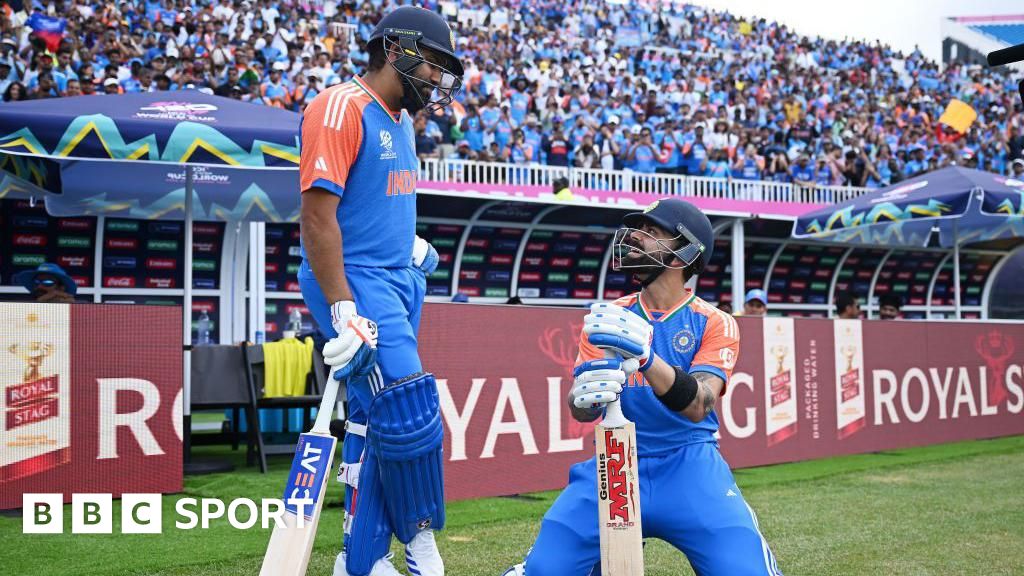Cricket
T20 World Cup: India voice New York pitch concerns but ICC stands firm – BBC Sport

- Author, Timothy Abraham
- Role, BBC Sport Journalist in New York
There are no plans in place to move any T20 World Cup fixtures out of New York despite growing fears over substandard pitches.
Serious concerns are mounting over the unpredictable nature of the drop-in surfaces at the Nassau County International Cricket Stadium after the first two fixtures played at the venue.
BBC Sport understands India have privately voiced their unhappiness with the unpredictable bounce and two-paced nature of the strips amid worries over the safety of their batters.
India play Pakistan on Sunday at the venue in Eisenhower Park in one of the most eagerly-anticipated fixtures of the tournament with a capacity crowd of 32,000 expected.
The International Cricket Council (ICC) is believed to be analysing data from previously abandoned games to establish how to react should it need to act.
However, ICC officials have maintained there are no contingency plans in place to switch any of the New York games to venues in Florida or Texas, both of which have natural turf strips.
It is understood an unused pitch has been designated for the India v Pakistan showdown, although there is flexibility to alter that decision depending on how other pitches play before that encounter.
What have been the problems?
Image source, Getty Images
The US is staging 16 of the 55 matches at the T20 World Cup, which it is co-hosting with the West Indies.
The pop-up stadium in New York has cost £24m ($32m) to construct and was built inside eight months to much fanfare from the tournament organisers.
The outfield is made up of Kentucky bluegrass, grown at a farm in New Jersey, on top of sand.
There was discontent with the pitch after Monday’s opening match in which South Africa were able to stroll to their victory target against Sri Lanka with 22 deliveries remaining, while India had 46 balls left when they hit the winning runs in another low-scoring match against Ireland.
It has meant the toss in New York has become pivotal in determining the outcome of the match, with the team bowling first at an advantage.
Batters have had to fend off short-pitched bowling, with balls climbing off a length while others skid along at ankle height through to the wicketkeeper.
A clear diagnosis for the problems has not yet been identified.
Similarly, the sizes of the boundaries – 75m and 65m on each side, and 71m straight – and slow outfield have inhibited run scoring with the boundary ropes unable to be pulled in because of ICC tournament guidelines.
As a result the cricket spectacle delivered by both games so far has been largely underwhelming.
India fans were even cheering runs for Ireland at one point during their eight-wicket win, hoping the length of the game would be extended so they could see more of their team batting in the second innings.
Concerns have also been raised about the six pitches laid at the net training facility in nearby Cantiague Park.
Earlier this week, South Africa’s batters opted for throw downs as opposed to facing their own bowlers, and local net bowlers, because of injury worries.


)






